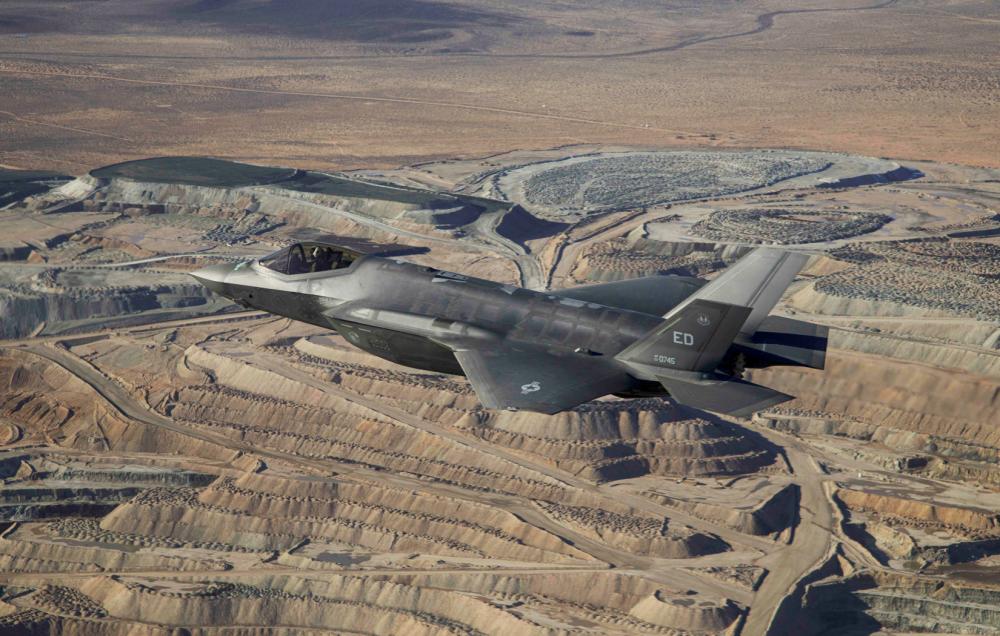GAO: F-35 Modernization Costs and Delays Escalate Sharply
The F-35 faces $38B extra costs and a growing “ghost fleet” of jets unfit for combat.
The United States Government Accountability Office (GAO) released its latest report on the F-35 Joint Strike Fighter program on September 3, warning of a collapse in production predictability, systemic modernization overruns, and a contracting structure that rewards underperformance.
The report, GAO-25-107632, titled “Actions Needed to Address Late Deliveries and Improve Future Development”, highlights that aircraft deliveries in 2024 experienced an average delay of 238 days—a dramatic deterioration compared to the 61-day average delay recorded in 2023. Lockheed Martin delivered 110 aircraft during that period, all late, while Pratt & Whitney faced similar challenges with the F135 engine.

A Dramatic Decline in Production Predictability
The GAO analysis stresses that the problem is not merely the delays themselves, but their sharp acceleration in a single year, with delivery times quadrupling. This trend casts doubt on the production line’s ability to stabilize, even before factoring in the Pentagon’s planned production increases.
Despite these issues, the Department of Defense (DoD) maintained what the GAO calls a “perverse” incentive structure: contractors were allowed to deliver aircraft up to 60 days late and still claim part of their “on-time delivery” bonus, undermining the intended purpose of these incentives.
TR-3 and a “Ghost Fleet”
The primary driver of these delays is Technology Refresh 3 (TR-3), a $1.9 billion package of hardware and software upgrades that form the foundation of the future Block 4 configuration. However, TR-3’s technical failures and delays have forced the Pentagon to accept aircraft fitted with an interim version of the system.

While this decision prevented a massive logistical backlog of over 100 aircraft parked at the contractor’s facilities, it has created a “ghost fleet” of new fighters that are not combat-ready and will require expensive future modifications. The report notes that the program is withholding approximately $5 million per aircraft delivered in this configuration—a financial patch over a deep technical issue.
Although TR-3 is the most visible bottleneck, the GAO identifies a persistent supply chain crisis. In February 2025, more than 4,000 parts were missing at the final assembly stage—double the historical average—revealing internal production issues beyond external supplier challenges.
Modernization and Long-Term Costs
The Block 4 upgrade—which includes the AN/APG-85 radar and advanced weapons integration—has accumulated over $6 billion in cost overruns and is at least five years behind schedule.
Additionally, the report quantifies the impact of delays to engine modernization. The added strain on the F135 engine to power new systems has accelerated wear, which the GAO estimates has already increased the program’s total life-cycle cost by $38 billion. This “technical mortgage” is expected to affect aircraft availability and maintenance costs for decades.
Recommendations and the Program’s Future
To address these issues, the GAO issued six key recommendations to the DoD. These are not minor suggestions but a call for structural reforms in F-35 program management, contracting, and development:
- Evaluate Lockheed Martin’s Production Capacity: Conduct a realistic assessment of Lockheed Martin’s ability to meet delivery targets, adjusting procurement schedules accordingly.
- Redesign Contract Incentives: Overhaul the incentive bonus system to reward timely deliveries and penalize delays, ensuring contractors do not benefit from poor performance.
- Adopt Modern Development Tools: Institutionalize agile development practices, including digital twin technology, to test and validate hardware and software virtually before physical production.
- Formalize Iterative Design Processes: Explicitly incorporate an iterative approach into Block 4 acquisition plans, delivering capabilities in smaller, manageable increments.
- Improve Contract Deviation Tracking: Implement a comprehensive system to monitor time and cost impacts for aircraft delivered below contractual standards.
- Align Engine Modernization with Future Capabilities: Ensure the Engine Core Upgrade schedule and requirements are fully synchronized with Block 4 and beyond, addressing cooling and power limitations.
While the DoD partially concurred with these findings, the GAO insists that only full and rigorous implementation of these measures can restore confidence in the F-35 program.
A Strategic Asset Under Pressure
The F-35 remains one of the most advanced tactical weapon systems in the Western arsenal, combining stealth, next-generation sensors, and multilevel interoperability. However, the GAO report reveals a systemic challenge: scaling production and modernization simultaneously while costs rise and readiness declines. With projected lifetime costs exceeding $2 trillion, every deviation from schedule is creating industrial and budgetary tensions that could impact U.S. and allied airpower dominance for decades to come.

/https://aviacionlinecdn.eleco.com.ar/media/2025/05/f_35.jpeg)
Para comentar, debés estar registradoPor favor, iniciá sesión